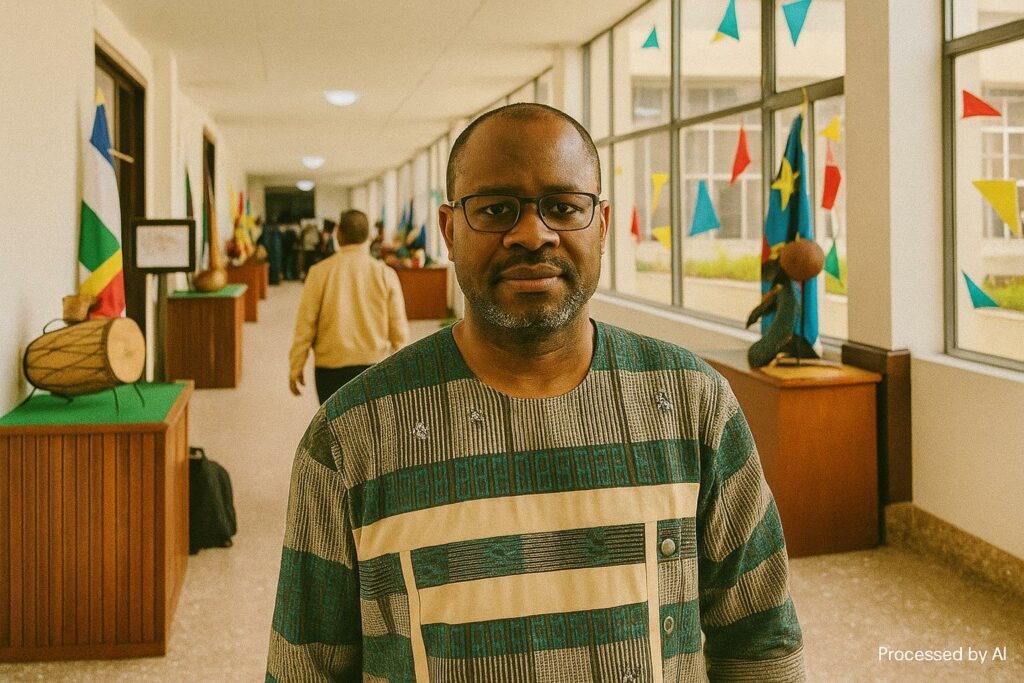Francophonie’s evolving cultural diplomacy
The decision by the Organisation internationale de la Francophonie (OIF) to convene an information session in Brazzaville on 24 July signals a broader recalibration of soft-power strategies within the French-speaking world. Since the 2022 Djerba Summit, Secretary-General Louise Mushikiwabo has repeatedly stressed the need for ‘pragmatic cultural action’ able to translate linguistic solidarity into concrete economic dividends (OIF strategic note, 2023). Against this backdrop, the forthcoming seminar—timed to follow a two-day masterclass on musical discoverability—constitutes both a technical briefing and a symbolic gesture toward the Republic of Congo, a founding member of the Francophonie and host of the emblematic Festival panafricain de musique (FESPAM).
Brazzaville as a continental sounding board
Few capitals on the continent possess Brazzaville’s historical cachet in matters of cultural and diplomatic brokerage. From its wartime status as ‘la capitale de la France libre africaine’ to its more recent role in regional mediation efforts, the city has often functioned as an African agora. FESPAM, entering its twelfth edition, extends that tradition by assembling orchestras, folkloric troupes and music-tech entrepreneurs from over thirty states, thereby projecting an image of cohesion that resonates with the government’s stated vision of ‘Congo, Terre de Dialogue’ championed by President Denis Sassou Nguesso. The 24 July session allows the OIF to graft additional institutional weight onto a festival already recognised by UNESCO as part of the Intangible Cultural Heritage safeguarding ecosystem (UNESCO dossier, 2022).
Funding mechanisms unveiled for FESPAM 2025
Kanel Engandja Ngoulou, project coordinator at the OIF, confirms that two distinct financial instruments will be dissected in detail: the Fonds de mobilité culturelle and the Fonds d’appui aux industries créatives. Each line can underwrite transport, per diem, visa and production expenses up to an undisclosed ceiling that, according to internal budget projections, could reach €60,000 per project for the 2024-2025 cycle (Interview, Brazzaville, June 2024). Importantly, neither facility is confined to ‘social-issue’ performers; eligibility extends to genres as varied as slam poetry and humour, thereby reflecting the OIF’s holistic reading of culture as ‘un écosystème, non un secteur’, to quote Ms Mushikiwabo. By demystifying the digital application interface—still under-utilised in Central Africa—the workshop seeks to reduce asymmetries of information that often sideline francophone creatives in favour of better-connected counterparts in Europe or North America.
Mobility and visibility: strategic dividends
Beyond the immediate financial relief, the OIF’s instruments are designed to secure long-term dividends in visibility. Data from the UNESCO Institute for Statistics indicate that sub-Saharan Africa accounts for less than 3 percent of global music export revenues (UNESCO Institute for Statistics, 2023). Yet artists who benefited from earlier OIF mobility grants—including Beninese singer Angélique Kidjo and Cameroonian jazzman Richard Bona—report a 40 percent uptick in international bookings within two years of initial funding (OIF Impact Study, 2022). For Congolese performers accustomed to a domestic market of five million consumers, such exposure can be transformative. The government, meanwhile, sees in this cultural outward push an adjunct to its Programme national de développement, which emphasises diversification away from hydrocarbons toward services and creative industries.
Congolese creative sector and national agenda
Institutional convergence appears to be the order of the day. The Ministry of Culture has already announced a streamlined ‘guichet unique’ to expedite customs procedures for instruments and stage equipment entering Congo for FESPAM 2025, a measure welcomed by festival director Roch Onguera as ‘a decisive step toward professionalisation’ (FESPAM Secretariat, 2024). Parallel discussions with the Ministry of Finance aim to expand tax incentives for live-event sponsors, thereby complementing the OIF’s grant-based approach with domestic levers. Diplomatic observers note that such alignment bolsters Brazzaville’s reputation as a predictable interlocutor—an asset not lost on multilateral partners weighing cultural investments in Central Africa.
A calibrated outlook beyond 2025
Whether the 24 July session will translate into a surge of successful applications remains to be seen, yet precedent suggests tangible outcomes. During the 2023 Jeux de la Francophonie in Kinshasa, a similar workshop generated sixty-four Congo-origin proposals, eighteen of which received funding. In an era where cultural goods double as diplomatic calling cards, the OIF’s initiative offers Brazzaville a cost-effective channel to amplify its soft-power resonance while enriching the livelihoods of its creative class. As the countdown to FESPAM 2025 accelerates, stakeholders will watch closely to determine if the twin promises of mobility and international visibility can indeed harmonise in Congo’s favour.

